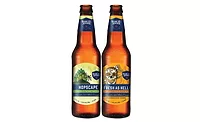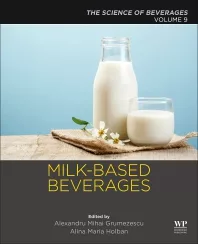CBA releases 2016 sustainability report
Craft brewing group addresses carbon intensity, waste prevention, community support
Craft Brew Alliance Inc., Portland, Ore., released its fourth annual sustainability report. The report provides an in-depth look at the company’s accomplishments in three focus areas: carbon intensity, waste prevention and local community giving.
As one of the largest craft brewers in the United States, CBA is committed to being a leader in sustainability through ongoing efforts that include benchmarking its carbon emissions, maintaining one of the lowest water-usage rates in the industry, partnering with suppliers to source more sustainable packaging and investing in biopower to generate renewable energy, it says. In 2016, the company also set three-year sustainability targets as part of its strategic World Class Craft initiative.
“2016 was a great year in terms of advancing our commitment to sustainability, tracking our impact and setting three-year goals to minimize our carbon footprint and support our local communities as we brew great-tasting beer,” said Julia Person, corporate sustainability manager for CBA, in a statement. “Across our breweries, we made important strides forward in our three focus areas: reducing our greenhouse gas emissions, getting closer to zero waste and community involvement. We look forward to putting this report together each year as it gives us the opportunity to share our goals and progress — as well as some of our beers — with our employees, partners and consumers.”
The following are highlights from the 2016 CBA Sustainability Report:
- Completed its first Lifecycle Analysis on a bottle of beer to understand the biggest opportunities to reduce its carbon footprint. One bottle of Kona Longboard Lager brewed in the company’s Portland brewery generated 392 grams of CO2 emissions, which places the company within the environmental benchmark, it states.
- Kona Brewing helped raise more than $240,000 to support local Hawaiian nonprofits, including the Surfrider Foundation, Sustainable Coastlines Hawaii, Mālama Maunalua and the Hawaiian Legacy Reforestation Initiative.
- Its Portland brewery, its largest brewing facility, achieved 22.6 pounds of Scope 1 & 2 carbon emissions per barrel with the help of the Energy Trust of Oregon. It also restored nearly 10 million gallons of water with Water Restoration Credits through partnering with Bonneville Environmental Foundation and sent 13,000 tons of spent grain to local farms, which helped the company divert 99.5 percent of its total waste from landfills, it says.
- Companywide, CBA reduced paper usage by more than a third through its PaperCuts initiatives, which saved 627,000 sheets of paper, the equivalent of 53 trees.
- Its Portsmouth brewery ran on 100 percent renewable power in 2016. It offset 3.9 million kWh using renewable energy credits and plans to generate .5 million kWh annually by harnessing biopower from its wastewater treatment process, it reports.
- Its Washington brewery was certified as the first Salmon-Safe brewery on the Puget Sound and was recently recognized as a Best Workplace for Waste Prevention and Recycling in Washington State. The brewery diverted 99.2 percent of waste, which amounted to more than 2,700 tons of plastic, cardboard, glass, compost and spent grain, it states.
CBA’s 2016 Annual Sustainability Report can be found here.
Looking for a reprint of this article?
From high-res PDFs to custom plaques, order your copy today!







